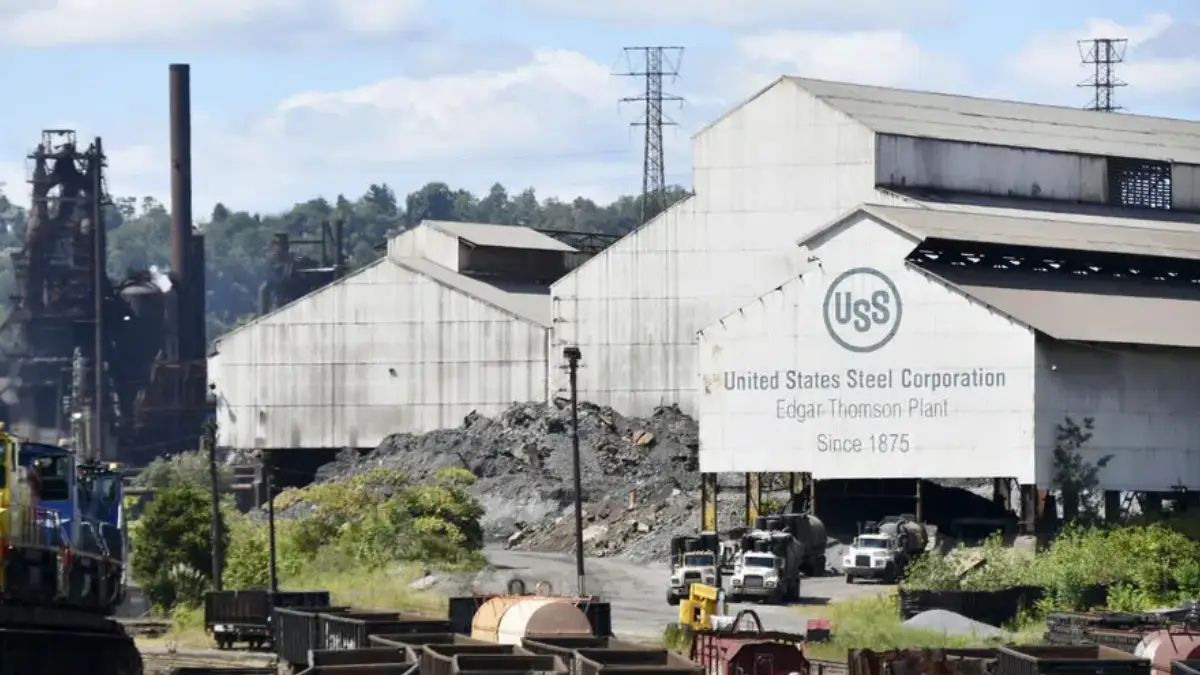In a decisive move geared toward safeguarding national protection and American business electricity, President Joe Biden is poised to block the proposed $14 billion acquisition of U.S. Steel via Japan’s Nippon Steel. This statement, expected as soon as Friday, underscores the administration’s dedication to keeping home industries, mainly in politically large states like Pennsylvania.
A Bold Executive Decision
The president’s intervention alerts an super exercising of executive strength. This selection deviates from the longstanding U.S. Lifestyle of open funding, potentially influencing future foreign acquisitions of American companies in sensitive sectors. The ramifications enlarge past financial coverage, impacting diplomatic members of the family with Japan, certainly one of America’s key allies and good sized overseas traders.
The Committee on Foreign Investment inside the United States (CFIUS), a multi-corporation panel that consists of the Departments of Treasury and Justice, expressed reservations about the transaction. Although the committee evaded issuing a proper advice, its issues about national security risks—mainly concerning capability declines in home steel production—caused Biden’s action.
Political and Economic Implications
The timing of this choice is specially notable, given the heated political surroundings main up to the 2024 presidential election. U.S. Steel, headquartered in Pennsylvania, a important swing kingdom, has lengthy been a cornerstone of American production. The powerful United Steelworkers union vocally adversarial the deal, mentioning fears over job protection and pension balance.
Former President Donald Trump additionally weighed in, affirming his aim to block the deal if re-elected. His opposition, alongside that of outstanding lawmakers from both events, heightened the political stakes. Democratic senators like Sherrod Brown (Ohio) and Bob Casey (Pennsylvania) joined Republicans such as JD Vance in urging Biden to intrude.
Legal Challenges Loom
Despite the administration’s stance, Nippon Steel is ready to mission the choice in court docket. In a letter to CFIUS, Nippon accused the White House of undue influence, arguing that the committee’s concerns have been unfounded and misrepresented the records. U.S. Steel, for its element, maintained that the merger became critical for its long-time period viability and personnel stability.
Historical Context and Industry Challenges
Founded in 1901, U.S. Steel played a pivotal function in constructing America’s iconic infrastructure, along with the Willis Tower and the United Nations headquarters. However, the organization has struggled to conform to evolving global markets and technological advancements. From a top group of workers of 340,000 inside the 1940s, the company now employs about 20,000, with four,000 primarily based in Pennsylvania.
Recent years have visible a resurgence in metal call for, pushed via federal infrastructure investments. Nevertheless, marketplace uncertainties persist. In 2023, Cleveland-Cliffs, a competing steel manufacturer, made an unsuccessful bid for U.S. Steel, paving the way for Nippon’s better provide.
Union Opposition and Worker Sentiment
The United Steelworkers union unexpectedly antagonistic Nippon’s bid, arguing that the Japanese business enterprise may not honor existing hard work agreements. Conversely, some U.S. Steel employees supported the acquisition, hopeful that Nippon’s funding should revitalize the employer.
Future Uncertainty for U.S. Steel
With the Nippon deal possibly off the table, U.S. Steel’s future remains uncertain. The agency faces mounting strain to steady opportunity investments. Nippon had pledged to hold headquarters in Pittsburgh and upgrade current mills, a promise now in jeopardy. Without a feasible path forward, U.S. Steel can also consider layoffs, restructuring, or relocation.
Broader Economic Impact
Biden’s choice displays a broader approach to strengthen American production and protect critical supply chains. While this technique garners support from hard work unions and financial nationalists, critics warn of capacity poor consequences for overseas funding and global change relations.
As the management navigates those complex dynamics, the destiny of U.S. Steel highlights the intersection of monetary coverage, national safety, and electoral politics. The coming months will reveal whether or not Biden’s gamble to dam the deal secures lengthy-time period benefits for American industry or triggers unexpected demanding situations at the global level.
Also Read: Apple to Pay $95 Million in Siri Privacy Lawsuit Settlement
My Name is M Anas. I am a passionate blogger with a knack for sharing insights on technology, autos, Mobile Phone, etc. With a creative flair and a commitment to delivering engaging content, Anas aims to inspire and inform readers with unique perspectives and well-researched articles.
